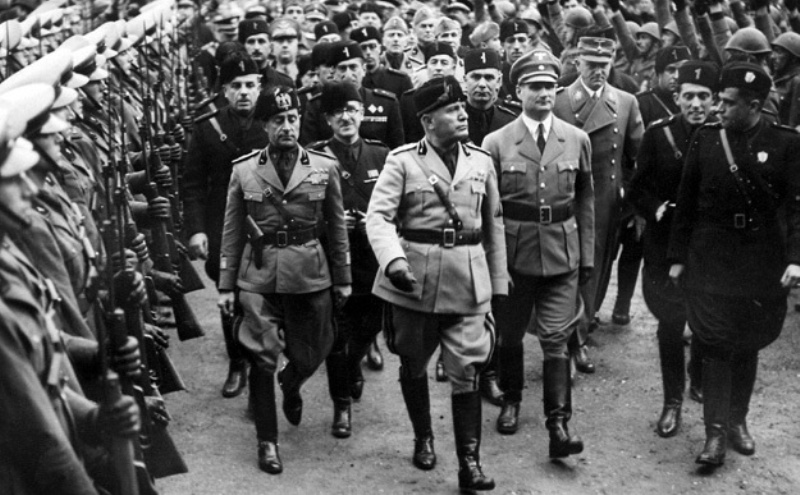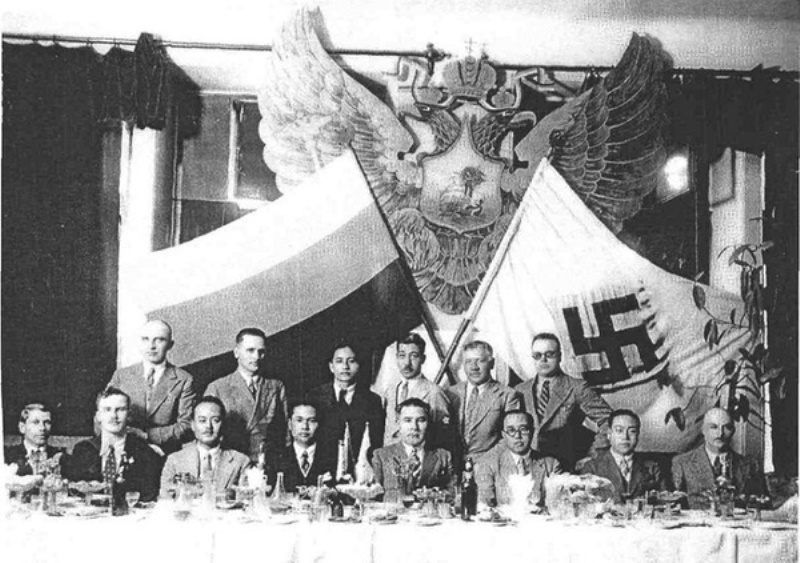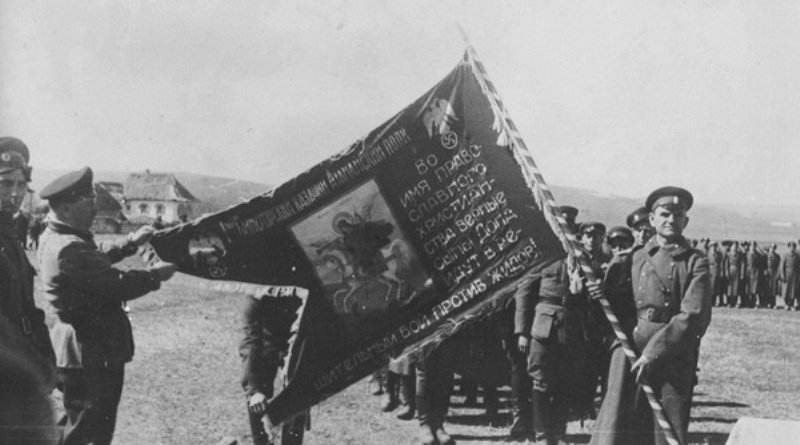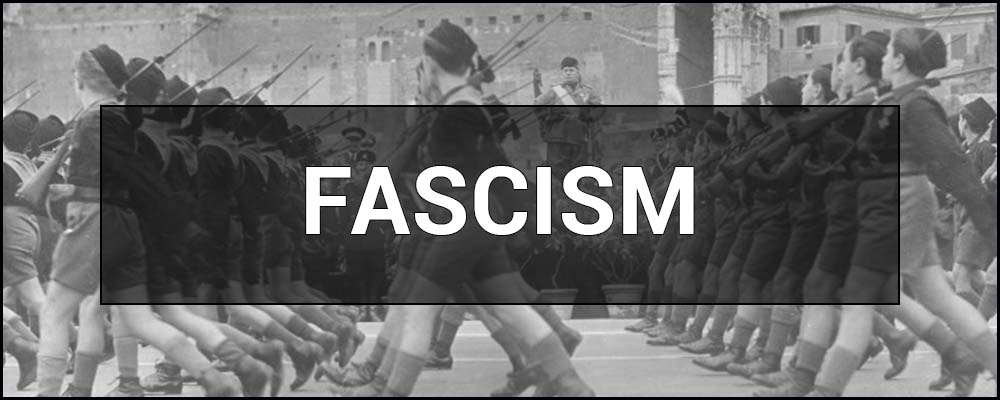Fascism is a totalitarian form of government that was popular between 1919 and 1945, but became taboo after the Holocaust and the defeat of the Axis states in 1945.
What is FASCISM – meaning & definition in simple words
Before proceeding to the analysis of what fascism really is, it is necessary to understand the confusion that exists around the use and understanding of this term. Of course, the definition of “fascism” or “fascist” causes negative emotions in almost all people, but, unfortunately, in most cases this word is used as a misinterpretation of the context. In simple terms, this means that people most often use this word without knowing its true meaning.

Confusion in terms. What is the difference between Fascism and Nazism?
The most important misconception is the fact that fascism is often confused with Nazism. Many people consider it synonymous with white power. But we must remember that there were “non-white” and racially mixed countries at one time had fascist governments, including Brazil, Mexico, Japan, and Zaire. Thus, some parallels should be drawn between fascism and Nazism. Nazism was basically the concept of Hitler’s Germany, which aspired specifically to racial purity. Italian fascism was based precisely on the political nation.
Etymology, origin, and definition of the word fascism.
The word “fascism” comes from the Italian word “fascio”, which literally means “bundle” or “union”. In Italy, a bunch of rods tied around an ax served as a symbol of the fascist regime, which symbolized the solidarity and strength of the country.
In its original meaning, “fascism” referred to the Italian fascists under the rule of Benito Mussolini. The authoritative document on this subject is The Doctrine of Fascism. It appeared as an entry for the term in an Italian encyclopedia published in 1932. Mussolini himself was identified as the author of this document, although the real and most likely author is the philosopher Giovanni Gentile. It was he who helped Mussolini formulate his political philosophy.

The main features of fascism:
- Nationalism (including economic nationalism);
- Corporativism (including economic planning);
- Totalitarianism (including dictatorship);
- The idea of a national leader (leaderism);
- Militarization and the cult of war (the presence of an external enemy);
- Propaganda at all levels of xenophobia, chauvinism, and racism;
- Traditionalism and conservatism.
In any case, this political system and ideology is banned throughout the world, due to the terrible consequences that the world faced during the Second World War. However, fascism was not completely defeated in World War II. All this time he successfully disguised himself under the guise of anti-fascism. Many of its aspects were actively manifested in the communist Soviet Union and were fully revealed in Putin’s Russia. Although the Putin regime publicly calls itself anti-fascist, it contains all the signs of fascism and Nazism in a modified form. This new mixture of Russian fascism and Nazism is now called Ruscism.

14 signs of eternal fascism by Umberto Eco.
(in simple terms for better understanding)
In addition to the standard signs of fascism, there is a list of 14 signs formed by Umberto Eco to characterize fascism. In general, this list is similar to the main list, but it is more extensive.
Umberto Eco is an Italian scientist, philosopher, historian, literary critic, and writer. In his view, fascism contains the following features:
Cult of Traditions:
- Truth is one, it is stable and unchanging;
- Any dissent is a betrayal;
- Only “eternal values” are important, based on a single truth.
Rejection of modernism:
- Irrational attitude to industrial achievements. Such achievements are needed only if they fit into the traditional theory of “Blood and Soil”;
- This means that the “correct” origin and land is more important than scientific and technological development, freedom of speech, freedom of personal choice.
Cult of action, for action:
- Why think when you can jump?
- The action itself is a wonderful phenomenon that does not require mental effort and reflection. A man needs instructions and orders;
- Suspicious attitude towards culture and art as a source of dissent.

Complete rejection of critical thinking:
- Any attempts to comprehend what is happening outside the framework of “eternal values”, new concepts and innovative approaches – destroy the system. And this means that they are forbidden and declared a betrayal.
Disagreement is a dividing sign:
- Disagreeing with the collective opinion is a betrayal;
- Disagreement is not only dissent, it is also belonging to something alien and hostile;
- If you are not with us, then you are against us. Dissenters must be destroyed.
The basic core of the ideology is disappointment, resentment, “unfair” defeats, economic and political crisis:
- The basis of fascism is the middle classes, who are having a hard time with the discrepancy between the level of their desires and claims to life and the level of opportunities (frustration);
- Inability and / or unwillingness to adapt to rapidly changing conditions;
- Self-withdrawal from the struggle for their civil rights and political will, the lumpenized sections of the population.
The guarantee of privileges is the right birth in the right country:
- The right to be born gives certain privileges within a closed traditional society, but closes the doors to the big world of wide development;
- Society is constantly under siege, threatened by both external and internal enemies;
- Manipulation with aspects of xenophobia – rejection and intolerance of someone else’s and incomprehensible because it is dangerous;
- Discrimination can be on any grounds, both at the level of everyday life and at all other levels.

There is a sense of resentment and injustice in society that enemies live better, richer, more stable, have more resources.
- The image of the enemy is drawn in two ways: on the one hand, the enemy undeservedly and unfairly lives better and richer, on the other hand, he is stupid and weak;
- There are no objective criteria for evaluating a hostile opponent.
The fight against the enemy is carried out only for the sake of the fight itself:
- Life is action, action is a struggle, and struggle is an eternal value like action;
- Pacifism is a betrayal that must be destroyed;
- The enemy cannot be spared even in thoughts, he is a priori a stranger, and strangers do not have the right to life;
- After the destruction of all enemies, the Golden Age will come, the era of prosperity.
Dominance of populist elitism:
Populism is a policy that appeals to the broad masses and promises them a quick and easy solution to acute social problems.
Elitarism is a concept that popularizes the positivity of the formation of elite classes in society.
- The nation is declared to be the chosen one, the best, but in order to achieve happiness, one must be a member of the party and be bound by a common cause and common blood. Best suited – the blood of the enemy.
- The social model is built according to the militaristic system, where each superior treats the inferior with contempt.
- The mass of the people is so weakened that it needs the guiding hand of the leader.
The cult of heroism and the cult of death dominates:
- Anyone who was born into the “right” nation is a hero.
- The hero must die heroically, and at the same time must kill more enemies.
- Heroic death is the ultimate reward for a heroic life.

The desire for power is tightly tied to the gender of a person:
- The cult of masculinity dominates, women fade into the background;
- Sexual dissent and liberties are punishable;
- Heroes reproduce heroes themselves, using women as incubators;
- Contempt for weaknesses and physical defects;
- Military exercises and sports training – consistently support the cult of masculinity.
Society management is based on the principles of high-quality populism:
- The leader represents the interests of the people. The personal rights and freedoms of an individual are leveled;
- The people is a monolithic unity that is called to action, but has no power over it;
- In modern conditions, the place of the leader can be occupied by TV or the Internet. This is also an example of management through qualitative populism;
- The emotional reaction of individual elite groups is presented as the unified will of the people.
Newspeak:
- Simplifying the language to limit the set of intellectual tools needed for critical thinking.
The term newspeak was introduced by Orwell in the novel “1984”, where it was appointed the official language of English socialism.




